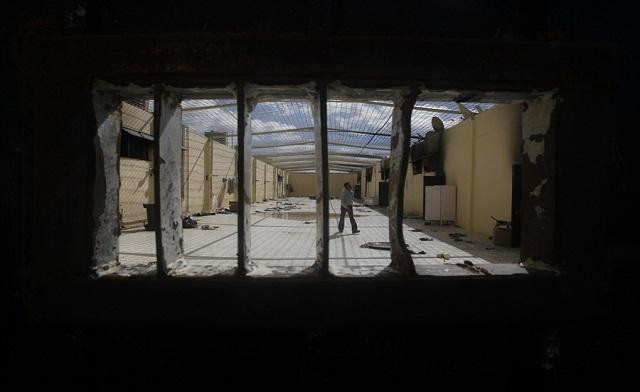Last month, one of the biggest textile names in Pakistan hosted a typically grandiose and hugely successful event showcasing its latest line of fashion wear. Cameras flickered to capture celebrities and designers entering and exiting the venue. Glaring lights reflected against colourful backdrops which displayed the names of sponsors and partners. Stone faced models posed elegantly for the glitterati.
In a land 20 kilometres away and some days earlier, 12 of the workers responsible for manufacturing towels sold at its outlet were arrested, detained, tortured and eventually charged under the Anti-Terrorism Act.
The common factor uniting all 12 workers was that they had recently formed trade unions and had been pressurising the owners of their factory to improve working conditions. The charges framed against them however allege that they were guilty of extortion against their factory owner.
That extortion against one person doesn’t amount to “terrorism” under the Anti-Terrorism Act suggests that the factory owners were either ill-advised or ill-motivated. Even so, the circumstances of the arrests are acutely instructive.
In January of this year, the workers joined hands to form a trade union. Thereafter, once protracted negotiations between the trade union and the factory management failed, the trade union approached the Labour Division of the Sindh Government to intervene.
On March 13, the Labour Division requested the factory owners to attend a meeting before the Labour Directorate on March 21. An FIR was registered against the workers on March 14 and they were bullishly wound up by the paramilitary rangers on March 21.
Presently, six of the workers are still under arrest whereas others union leaders and members have obtained an order from the High Court of Sindh to ensure they are not arrested on similar grounds. Of those that are still languishing behind bars, the Asian Human Rights Commission confirms that when produced in court, they were all badly injured due to torture, with some receiving serious injuries to the hands, legs and eyes.
It should be clarified that these workers are employed by factories that manufacture products for textile retailers and not directly by those we know. This is becoming an increasingly common practice in our industries; and for compelling reasons, some of which are legitimate and others, questionable.
For one, by outsourcing large manufacturing units, owners avoid getting caught up in the uncomfortable web of labour legislation. Many of these companies also engage in vast amount of export. Their bed sheets, towels and clothing are sold across the EU and the United States. Trading with companies in these countries means that they have to meet certain basic labour standards.
For instance, under the WRAP Certification Program, manufacturers must ensure compliance with labour legislation, minimum wage standards, prohibit child and forced labour and allow freedom of association. Similarly, prominent retailers such as Gap, Levis and Walmart require their export partners in Pakistan to ensure similar standards are met. Having a local partner do the manufacturing thus allows exporters to evade these requirements, cut corners and curtail costs.
There are those that will argue that this is astute business sense. It’s difficult to disagree with that, but this is a delicate relationship.
Economists have consistently found that happy workers produce happy results. Until businesses realise this, ugly encounters will continue to lurk in the shadows of glaring lights and stone faced models.
Read more by Furkan here.
Torture behind the scenes of fashion
The workers demanded better working conditions for which they were arrested, detained and tortured.



COMMENTS
Comments are moderated and generally will be posted if they are on-topic and not abusive.
For more information, please see our Comments FAQ